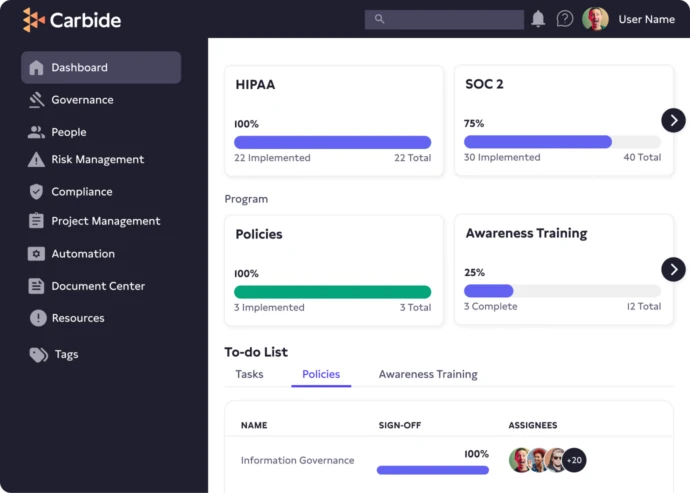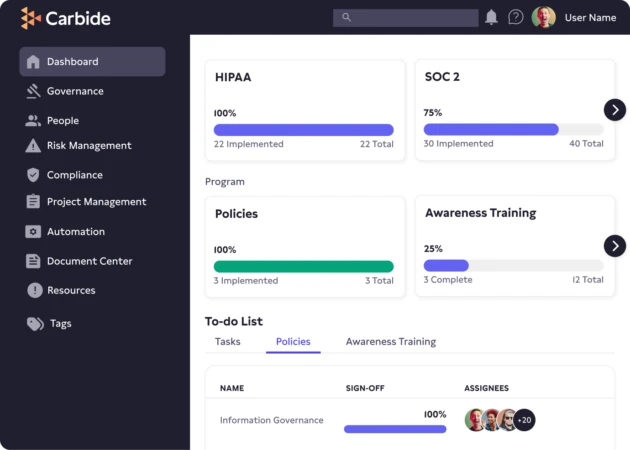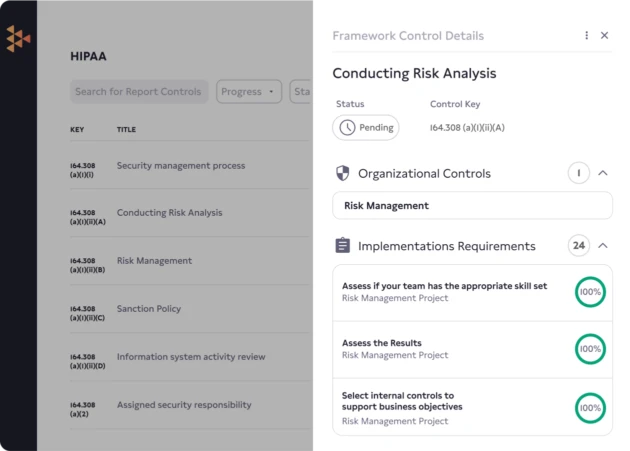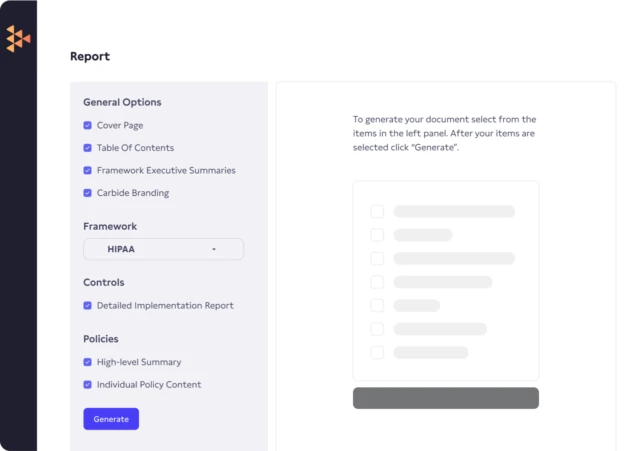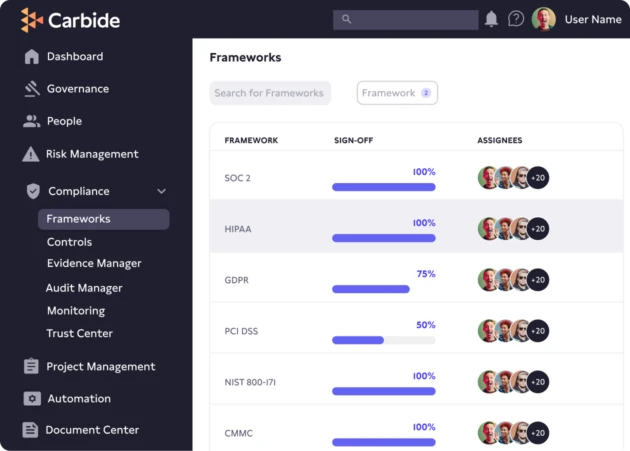Securing electronic protected health information (ePHI) data is a necessity if you’re a HIPAA business associate. The Health Insurance Portability and Accountability Act (HIPAA) gives you a robust framework to follow — including the Security and Privacy Rules, which state safeguards for the necessary controls, procedures, and subject rights under HIPAA.
With the Carbide Platform and its embedded DRIVE (Design, Review, Implement, Validate, & Evolve) approach to HIPAA compliance, you can leave your checklists and spreadsheets in the past and follow our step-by-step plan to implement HIPAA information security and privacy controls.

